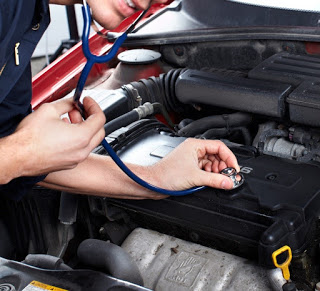
Most car batteries can last up to three or four years. Depending on how much you drive, along with other external factors, this lifespan can get considerably shorter. The good thing is that there are also plenty of simple maintenance tips that you can do to ensure battery health. Here are a few of them:
Turn Off and Unplug
One of the easiest and best ways to extend the lifespan of your car battery is to turn off all the lights before you leave your car. Check everything from the headlights and signal lights to the cabin lamps and trunk lights. Check the doors as well to ensure that they’re properly latched and won’t trigger the switch (if the cabin lamps are set to the “Door” function).
You should also unplug accessories like phone chargers. They consume only a small amount of electricity but leave them plugged for long enough and they’ll have a significant impact on your car’s battery life.
Perform Regular Inspections
From time to time, give your car battery a thorough inspection to see if anything’s wrong. Look at the terminals to see if they’re still clean and if the wires are properly connected. Take a look at the body as well, and look for any cracks, bulges, or similar forms of damage. If this is the case, it’s time for a replacement. You can buy car batteries in Mauritius online, so you don’t have to risk the dangers of driving your car with a failing battery.
Another important thing to check is the hold-down bar. This component ensures that the battery is sitting snug and secure within the engine compartment, preventing vibrations that can cause damage.
Keep the Battery Terminals Clean
As previously mentioned, you should regularly inspect your battery for signs of wear and tear. One of the most important things to check will include the terminals, which can get corroded or caked with oil and debris. If the terminals are dirty, they can interfere with the electrical connections and cause issues like difficult starts or even complete loss of power.
The good thing is that you can clean the battery terminals at home, especially if there’s not a lot of build-up. You can use water and baking soda, along with an old toothbrush to scrub off the dirt. You can also put a small amount of petroleum jelly to act as a lubricant and also as protection from further corrosion. If you’re hesitant to clean the battery terminals on your own or if the problem is much worse than expected, your trusted mechanic will be more than happy to provide the service.
Protect the Battery from Extreme Temperature
Depending on where you live, you may need to insulate your battery during the winter. This will prevent the battery from losing its charge faster. What’s more, you’ll have an easier time starting your car even when the weather gets a little too cold.
In the same way, you also need to protect your car battery from high heat. If you don’t, the extreme temperature will evaporate the fluids, weaken the charge, and speed up corrosion. For those who have the space, park your car in cool, shaded areas. If you have an indoor garage that’s properly ventilated, much better. You may also want to get battery heat shields to add further protection.
Drive At Least 30 Minutes a Week
If you don’t drive often or only make short trips at a time, the alternator might not be able to sufficiently charge the battery. Make an effort to drive your car for at least 30 minutes once a week to give the battery a boost. If you can, drive on a highway and maintain a speed of about 60 to 80 kilometres per hour. Think of it as a form of exercise for the battery and alternator.
Disconnect the Negative Terminal
If you aren’t going to be able to drive your car for a long period (and no one can drive it for you), it’s best to disconnect the negative terminal. This will prevent electrical components like the clock and security alarm from drawing power from the battery. Why the negative terminal? That’s because it will disconnect the battery from the chassis ground. Wrap the end of the negative cable with a dry cloth or any other form of protection to prevent it from touching the positive cable and cause electrical damage.
Do note that disconnecting the battery will reset any electronic settings you’ve saved in your car. Thus, take note of such settings so you can restore them accordingly once you reconnect the battery.
As you can see, these battery maintenance tips aren’t all that complicated. They won’t make your battery last forever, but they will certainly prolong its service life. Ultimately, this will also keep your car in good running condition for longer.
